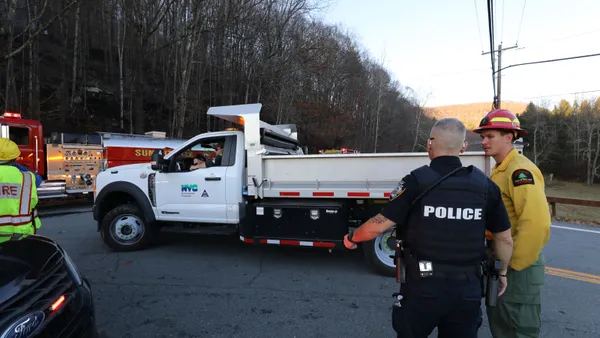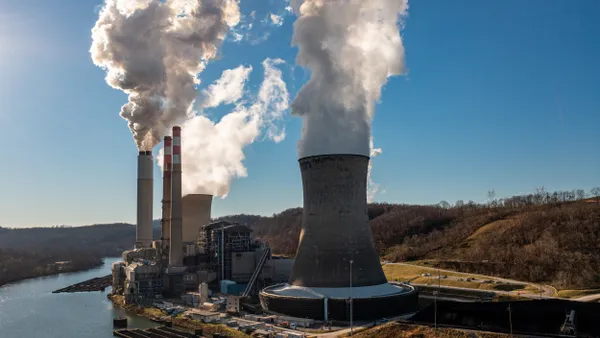Dive Brief:
- Humans, not technology, currently serve as the sensors to detect water supply problems, Aquagenuity CEO Doll Avant told Smart Cities Dive at last week's Smart City Expo Atlanta. The lack of smart water infrastructure has been evidenced by the recent water crises in Flint, MI and Newark, NJ. "You can't have smart cities without smart water," she said.
- The first step to preventing another Newark- or Flint-like crisis is resident awareness and a desire to take more responsibility for monitoring their own water, according to Avant. "We can no longer wait on the government to handle issues like this," she said.
- Smart water technology will also be key to developing safe water practices, Avant said. She touted her own company's technology, which looks to provide data directly to citizens and governments to predict and prevent water crises. Its app and testing kit allows individuals to test water, then upload the results in real time to an accessible water quality heat map of the area.
Dive Insight:
Cape Town, South Africa almost ran out of water in 2018. The city's crisis marked the first time a prominent modern city faced the threat of water depletion. Although the worst of Cape Town's crisis was avoided due in part to a drastic change in resident habits, their situation was not an anomaly, Avant said.
Flint, MI proved to the U.S. that water safety is "not a Third World issue," she said. In fact, there are 3,000 locations in the U.S. with more lead in their water than Flint. Newark, NJ is the latest city to make headlines for high levels of lead.
While the U.S. does have "one of the safest public drinking water supplies in the world," according to the Centers for Disease Control and Prevention (CDC), water infrastructure remains one of the least disrupted municipal systems. About 6 million lead service lines are used today.
Cities like Akron, OH and Washington, DC have turned to new technology to try and get ahead of water management issues. Drones, sensors, robots and automation are helping governments turn water management into more of an exact science than an art. In Akron, for example, the city is planning to put smart meters in homes by 2021 that will help detect leaks or other issues and collect readings for billings.
The past century has taught us that the government is overwhelmed, according to Avant. By providing households with the ability to test their own water, individuals can take a proactive approach to their own health while ostensibly also saving time and money for cities.











